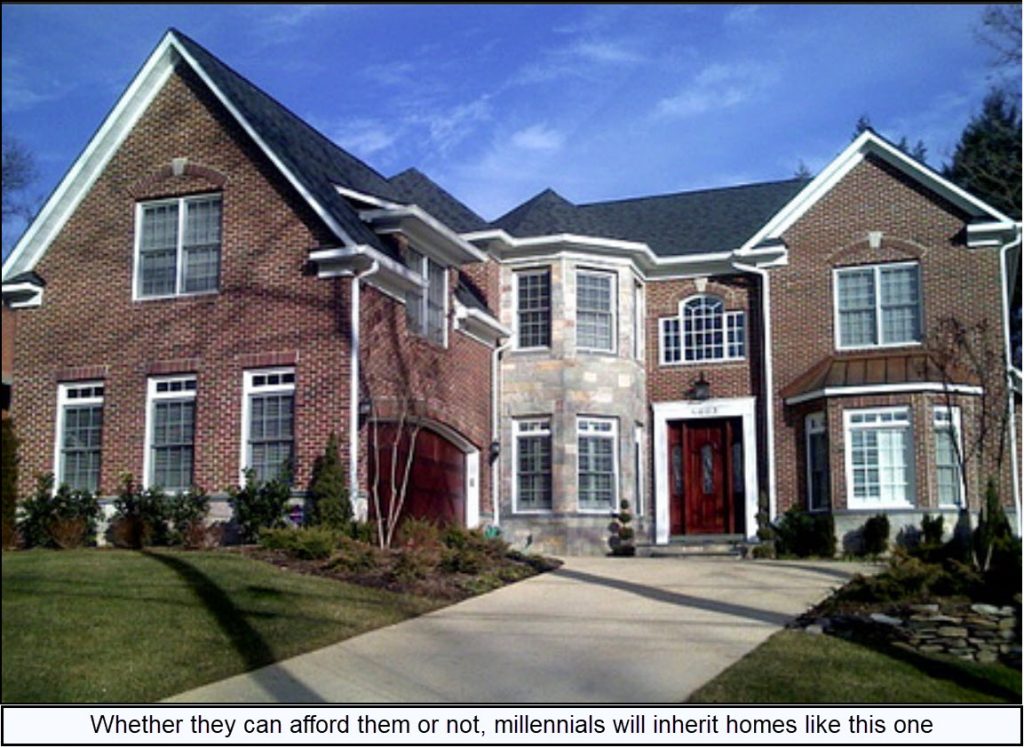Can the Wall Street Journal‘s headline writers save America’s juiced-up economy from going bust? They are certainly trying. Check out the lede atop Friday’s editions: The Fall in Home Prices May Already Be Over. Fancy that! With mortgage rates headed toward 8%, many readers must have done a double-take when they scanned this seeming howler. Your editor wondered why the copy desk had not punctuated the headline with three or four exclamation points, lest the story fail to goad potential buyers who have been sitting on the sidelines into action.
However, the article itself, written by one Nicole Friedman, had a somewhat more nuanced take on the housing market. Although she gave Realtors an opportunity to do some boisterous cheerleading for the industry, she did not allow them to claim that residential sales are strengthening. For how could they be? It turns out that prices are no longer falling because transactions have all but dried up. Few homeowners are listing these days because the price of any home or apartment they might move into would be just as pumped up.
Although there are probably millions of Baby Boomers who would love to downsize in order to free up more money for retirement travel and other pleasures, it seems increasingly unlikely there will ever be buyers for their homes at today’s insane prices. Millennials and Gen-xers are already so tapped out that they can’t even pay back student loans, let alone buy their parents’ 4,000-square-foot McMansions in the suburbs, or keep Social Security and Medicare solvent. Our kids will eventually inherit the homes, even if they are unable to afford upkeep and taxes. It is predictable that lawns will go to seed and that the amenities of suburban towns will wither for lack of property-tax revenues.
What AAPL Is Saying
Here’s another ‘Ray-rah-sis-boom-bah!’ headline from WSJ weekend editions: Earnings Estimates Are Rising, a Welcome Sign for the 2023 Market Rally. Considering that share prices have been rising for the last six months on lousy earnings, one could almost imagine S&P valuations inflating by half again if earnings were actually to turn strong for a few quarters. Even so, investors would be wise to hedge their bets with Treasury bills, bonds and notes, since the latest, extreme yield-curve inversion has already signaled the near-inevitability of an equally extreme recession. AAPL shares, which plummeted 14% last week, have already figured this out, even if the pundits who purported to explain it have yet to stumble on the simple reason.


Timely topic on poignant questions Rick, thanks again.
Must have been something stimulating in that Atlantic Aquifer we drank, before saltwater and the Salem Nuke plant tritium made Bourbon the better beverage.
Since the Great Depression, an ever inflating Fed made homes the number one wealth engine for the middle class American Dream.
Our Palo Alto home accidentally saw unbelievable nominal appreciation exceeding ten-fold original price, 100 times with 10 % down on an adjustable rate fixed payment negative amortization at sixteen percent that everyone, especially the mortgage broker and realtor, told us was cuckoo.
Merrill’s All American Asset Manager then back in the mid-80s, pipe smoker Stanley Salvigsen, was a deflationist who actually shorted his home and made money. He was invited to leave Mother for Comstock Partners before he died at 53 of a heart attack in the mid-90s from staying too short too long.
Gary Schilling had a similar experience in the mid-70s with Standard Oil (XOM), the San Francisco Fed, Merrill and White Weld, even showed a complaint letter to Merrill CEO US Treasurer Don Regan that his disinflationary views did not comport with Merrill being bullish on America, even though they made money.
Back in Silicon Stanford Valley, the biggest bond bull market in history bailed us out with rates that ultimately fell to 2 % and change, making us free for Oxford Blue sabbatical and move to Lake Tahoe before the Lockdown Remote workers swamped Mark Twain’s angelic atmosphere with even greater housing madness.
Then, with an administration without a debt ceiling, affordable energy or an inflationary central bank, things began to change in a way that not one in a million, to paraphrase Baron Keynes, understands, namely screwflation.
So the American Dream of home ownership, after universal college education and healthcare, became yet another tinder trap for disguised wealth destruction.
Our suspicion is that what goes up may come back down further and more quickly.
Thus precious and volatility trades may make more moola for the time being, perhaps until Gen Xrs and Millennials get off the government matrix parental payroll.
That has certainly been the case in our family.